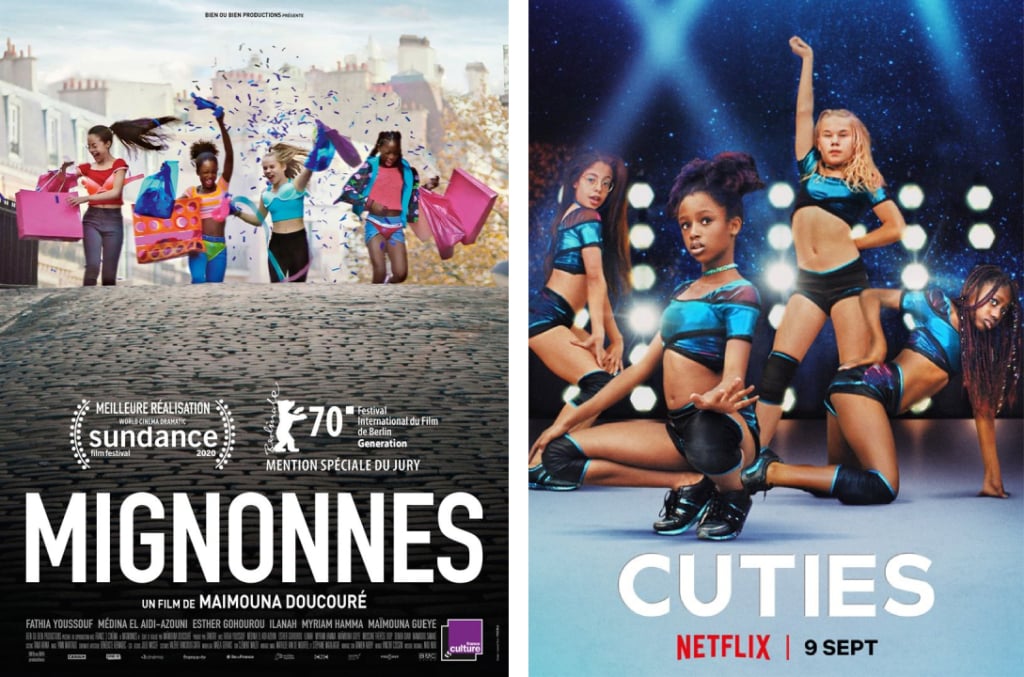If you’ve been on the internet at all within the past few weeks, chances are you’ve heard of a new Netflix film called “Cuties.” Within hours of the trailer dropping, #CancelNetflix began to trend on Twitter, alongside a myriad of virtually identical hashtags that were misspelled — that’s just how many people were tweeting about it. The brunt of the concern arose over the movie’s poster and trailer, which shows a dance troupe of 11-year-old girls dancing provocatively as they work toward a dance competition (and this is on top of the film’s MA rating). Given that info, it sounds pretty damnable. People canceled their Netflix subscriptions. Ted Cruz even took to Twitter to demand the Department of Justice open an investigation into Netflix’s “distribution of child pornography.” Outrage over the film reached such a fever pitch that director Maïmouna Decouré had to deactivate her Twitter account over the death threats she was receiving. (In her defense, the controversial movie poster was never run by her, and is pretty unrepresentative of what the film actually contains. And to the credit of the critics, there’s a very questionable difference between the French poster and the American Netflix poster.)

In the wake of all this collective pearl-clutching, I thought I’d sit down and actually give the movie a watch — which in hindsight is something I can guarantee 95% of the pearl-clutchers did not do. And honestly? It’s a good movie, as in won-an-award-at-Sundance good. The “good” verdict doesn’t come without caveats, but it is most certainly not endorsing the sexualization of children — it’s the exact opposite.
“Cuties” tells a moving coming-of-age tale about a young girl named Amy, who has grown up in a very traditional and religious household with definite ideas of how a woman should behave and dress. Amy seeks to push these restrictive boundaries and falls in with a “Mean Girls”-esque clique at her school that doubles as a dance team, which likes to dress (and dance) very provocatively. The rest of the film follows Amy as she shifts between these two antithetical worlds that are set on a collision course. The pendulum starts at one extreme, and Amy swings it way too far in the other direction.
Decouré has stated that the film is semi-autobiographical, modeled after her own experiences of growing up in a polygamous Senegalese family in Paris. And it’s these moments in the film, when Amy is at home with her family, that it really shines. The set-up of the theme is a bit ham-fisted at the beginning of the film; Amy and her mother attend a religious meeting with other Senegalese Muslim women, one of whom preaches, “Where does evil dwell? In the bodies of uncovered women.”
The relationship Amy has with her mother and grandmother is complex, however, as they double as both the strict enforcers of this belief and as Amy’s most stalwart sympathizers. After crawling under a bed to hide from her family the fact that she’s wearing a crop top, Amy unintentionally listens on as her mother breaks into tears over the news that her husband is bringing home a second wife from Senegal. Later, while helping her grandmother with food for her father’s upcoming wedding, Amy drops everything and runs off to attend a dance audition. She returns home to an implacable grandmother who begins to berate her, only to notice blood on Amy’s pants. It’s like a switch is flipped, and after the old-lady cackling subsides, she regales Amy of her own wedding from when she was only a few years older than Amy. It’s a fascinating dichotomy that Decouré employs throughout the film — a camaraderie among women in restrictive traditions.
Camaraderie or no, Amy wants nothing to do with it and instead strives to ingratiate herself with a group of girls at school who flout any and all restrictions. I’ll admit, this is where I thought the film was a bit weak. The dynamic of the “Cuties” group was a bit over-the-top catty and almost trite. The friend group’s arc was nothing we’ve never seen before: the new girl has to prove herself to join the clique; Amy edges another member out and takes her place; Amy takes the group in the wrong direction (even by their standards) and gets kicked out.
Though I do recognize the necessity of this plotline: Amy struggles to be taken seriously as a “woman” and is caught between two drastically different ideas of what womanhood looks like. What falls to the wayside (and ultimately, what she realizes in the closing of the film) is that she is still just a girl. Womanhood, whatever she decides that to be, can wait.
In all, “Cuties” is a strong film, with much to say about the world many young girls find themselves navigating today. It’s a huge shame that discussion about this film has been filtered through the lens of pedophilia when the film is literally about the increasing sexualization of young girls. It has left any conversation about “Cuties” vitriolic, and defending the film’s many merits has now been equated with pedophilia apologism. Personally, I’d recommend you give it a watch and decide for yourself, independent of what moral crusaders on Twitter have to say about it. Is it an uncomfortable watch? Certainly — but it’s one that is all the more necessary.
Contact Hannah Blum at hannahbl ‘at’ stanford.edu.
